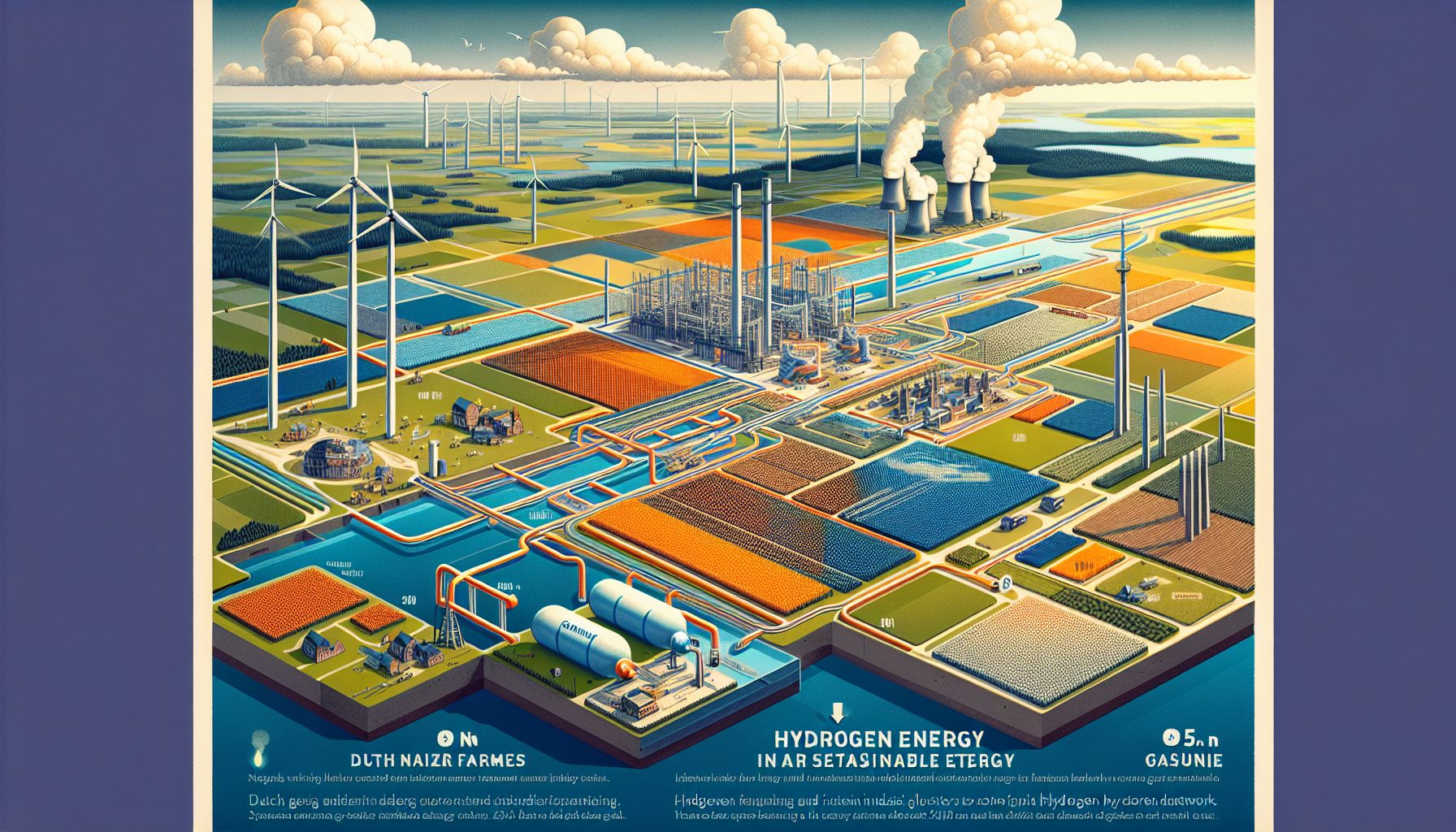Gasunie Partners with Dutch Farmers for Ambitious Hydrogen Network

Groningen, Tuesday, 9 July 2024.
Gasunie is developing a 1,200 km hydrogen network across the Netherlands, collaborating with farmers and industrial clusters. The project, set to complete by 2030, aims to revolutionize the country’s energy landscape, utilizing both new and existing pipelines to connect major industrial hubs and support the transition to sustainable energy.
A Strategic Partnership
The collaboration between Gasunie and Dutch farmers marks a significant step towards creating a sustainable energy infrastructure. By engaging local farmers, Gasunie aims to secure the necessary land and permissions required to lay down the extensive hydrogen pipeline network. This approach not only ensures community involvement but also paves the way for smoother implementation of the project.
Hydrogen: The Future of Energy
Hydrogen is being touted as a key player in the future of energy due to its efficiency and lower carbon footprint. Gasunie’s experience with hydrogen transportation dates back to 2018 when it successfully converted a natural gas pipeline for hydrogen use. This historical success provides a solid foundation for the current ambitious project, which will see approximately 500 km of new pipelines constructed alongside the conversion of existing ones[1].
Connecting Industrial Clusters
The 1,200 km network will connect five major industrial clusters across the Netherlands, ensuring a reliable supply of hydrogen to these energy-intensive sectors. These clusters are strategically located to maximize the impact of the hydrogen network, supporting the nation’s broader energy transition goals. Additionally, the network will integrate with international supply and storage facilities, enhancing the Netherlands’ role in the global hydrogen market[1].
Government and Community Support
The Dutch government plays a crucial role in the development of this hydrogen network. By coordinating permits and spatial planning, the government ensures that the project adheres to national and local regulations. This collaboration extends to local communities and landowners, who are engaged in discussions about compensation and the use of existing pipelines. Such inclusive measures are vital for the project’s success and community acceptance[1].
Financial Backing and Future Prospects
Despite a recent downgrade in its credit rating by Moody’s from A1 to A2, Gasunie remains committed to its Vision 2030 program, which includes substantial investments in hydrogen infrastructure[2]. The financial outlook, while stable, reflects the long-term nature of these investments. However, with the anticipated recovery of the Fund from Operations (FFO) by 2026, Gasunie is poised to lead the way in sustainable energy solutions[2].
Conclusion
Gasunie’s collaboration with Dutch farmers and the strategic development of a national hydrogen network is a landmark initiative in the Netherlands’ journey towards a sustainable energy future. By leveraging local and international expertise and ensuring robust community and governmental support, this project not only promises to revolutionize the national energy supply but also positions the Netherlands as a pivotal player in the global hydrogen economy.

